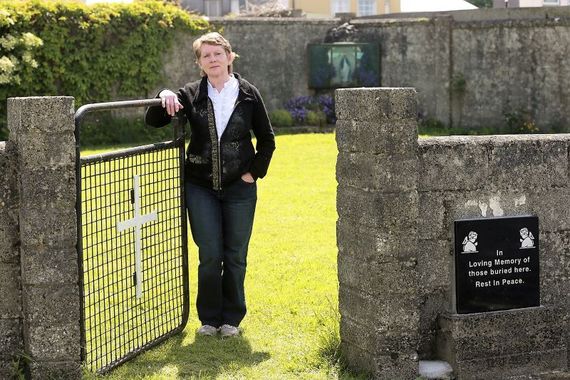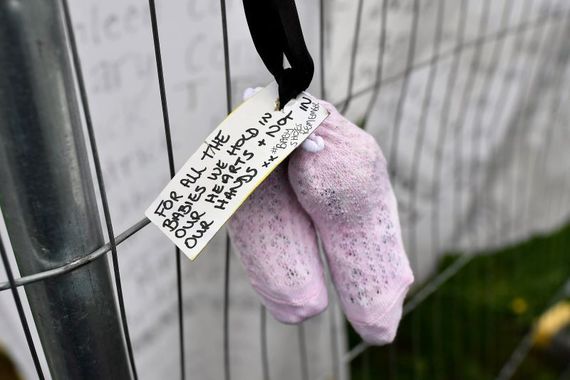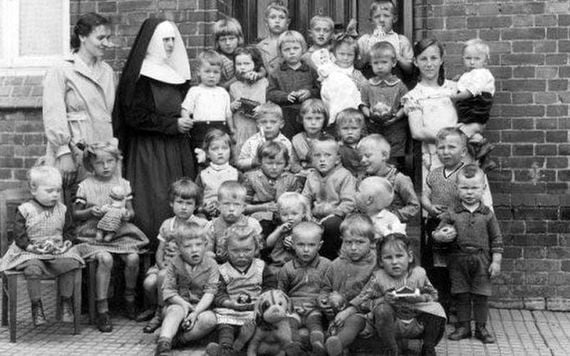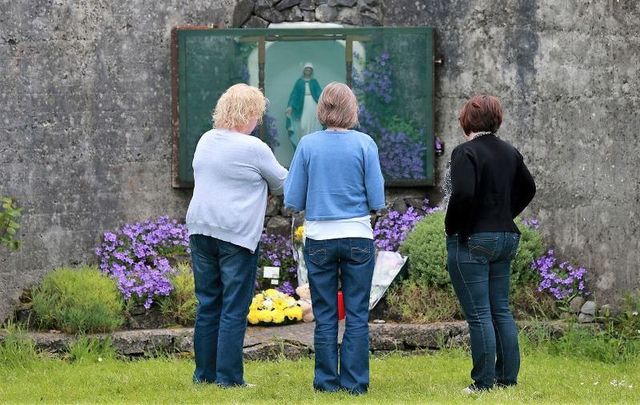Official Ireland waited for the world's press and public attention to forget the Tuam Mother and Baby Home scandal. Then they moved on themselves.
You know the scene. Two school lads are out playing in a field in Ireland in the mid-1970s when they find a big stone in a field, which when they lift leads them underground.
Stephen King stories start this way, with two innocents uncovering something horrifying.
But this wasn't fiction, this wasn't some made-up story on the supermarket shelves, it was Tuam, County Galway in 1975, and the hundreds of little skeletons the two boys found in a disused sewage tank were all too real.

Catherine Corless, who is credited with uncovering the Tuam Mother and Baby Home scandal.
Let's pull the camera back. In the 1970s, Catholic priests were still telling my aunts not to wear mini-skirts in public. In particular, I remember the caustic shaming that one priest delivered her outside an oratory.
He spoke as though she were a biblical harlot to be cast out and stoned. I was just a boy back then but I remember how red her face grew and how red his did. I remember she tripped in her white platform shoes on the way home.
You couldn't talk back to a priest back then. I mean, you could have tried, but it would not have gone well for you. At best you'd have been written off as a crank and at worst you'd be boycotted. That's because the clerical word was the last word and people fell into line.
That explains why you could uncover a grave of almost 800 dead infants in a disused sewage tank in the 1970s and yet a great silence would descend and cover it all up.
It was the ultimate Jedi mind trick. If the pope was infallible, then so was the Church and all of its agents. There was nothing to see here. You can go on about your business. Move along.

A makeshift memorial at the Tuam Mother and Baby Home in Galway. (Getty Images)
So people moved along and they kept on moving. In the early 1980s, I remember the national convulsions over the abortion referendum. I was still just a kid then but I can still recall the national indignation, the ostentatious piety, the hypocrisy I saw all around me.
Many people in Ireland genuinely believed they were better than other nations, more Catholic, more holy. That's precisely what made them so dangerous. They denied that any national story existed by the idealized Catholic one. They were not interested in having a discussion. A huge silence descended again.
People often vanished into that huge silence I discovered, all kinds of people, people who didn't fit the story that the country was telling about itself. Unmarried mothers, their children born out of wedlock, the children of the poor and the addicted, the mentally ill, the disabled, the gay.
You could find yourself unfamilied and warehoused in some gloomy institution with high walls and stern nuns where you could vanish for years, decades, or forever.
It happened to tens of thousands of Irish people. It happened to the most vulnerable. Our national story ruthlessly cast them out, sent them offstage, to be silenced, and disappeared. It was always for their own good, never for ours. That's what we told ourselves.

So I have no patience with people who claim they didn't know. Of course they knew, they simply did what people did when confronted by abject horror: they shuddered and thanked the stars it was happening to someone else, not them. It was always fear, not piety, that kept their mouths shut.
Last week Catherine Corless, the Tuam historian and an all too rare Irish truth-teller, told the Dáil's Children Committee that she was “naive” to believe that the little bodies would be exhumed after they were discovered in the mass grave there.
She had believed the Tuam remains would be exhumed and identified but instead, the government returned the site to its original and unmarked condition once the world's press and public attention moved on.
"I naively thought then that my work was done," Corless told the Joint Committee on Children, Disability, Equality and Integration debate on April 14, "and that now surely there would be immediate action by the State, the church, and Galway County Council to do the right thing and exhume the babies from this sewage site.
Instead, official Ireland did what it always does, it waited for the storm to pass and let silence swallow up the whole sad affair. Experience has taught them we will eventually play along because – and let's be honest here – we always have.




Comments